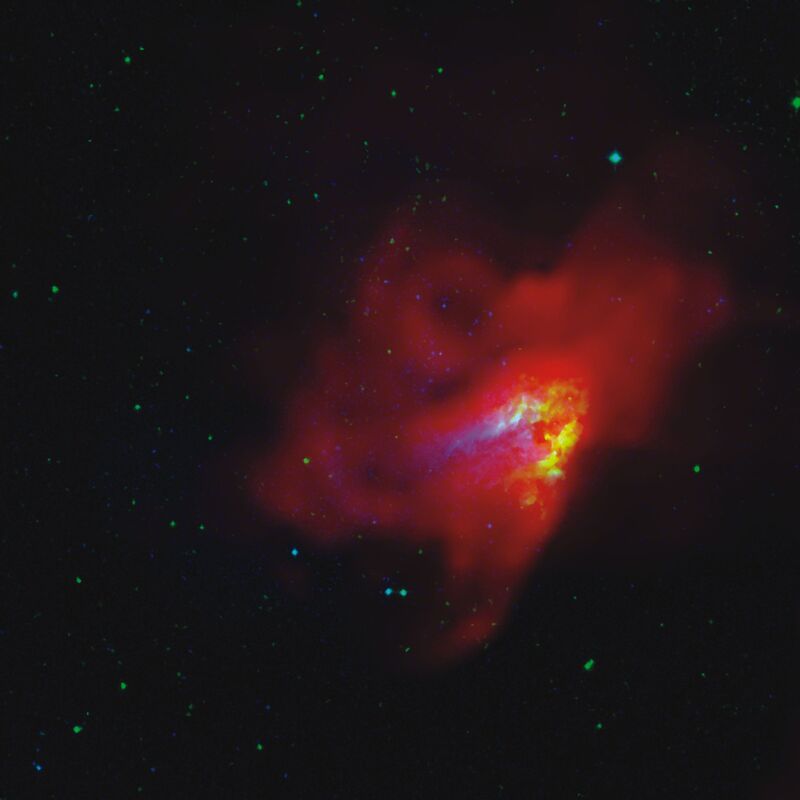Omega Nebula (M17) Composite
Description
The Omega Nebula (also known as M17, the Swan Nebula, and the Lobster Nebula) lies about 5700 light years away in the constellation of Sagittarius. The nebula is found at the edge of a dark gas cloud in which new stars are being born. Optical light, infrared radiation and radio waves are emitted by the nebula. The infrared radiation (green) is emitted by dust clouds warmed by new stars imbedded in the nebula. The optical light (blue) and radio waves (red) are produced when hot, young stars ionize the gas around them. While much of the optical light is blocked by foreground dust clouds, the radio radiation streams on through, allowing us to see all of the hot gas. Collaborators: UMass/IPAC-Caltech/NASA/NSF/National Geographic Society/STScI
Creator
Legacy Astronomical Images
Rights
NRAO/AUI/NSF does not hold full copyright for this image. Contact the archivist for details.
Type
Legacy Astronomical Image
Object Name
M17
Investigators
Frank Ghigo, Ron Maddalena, Glen Langston, Toney Minter
Telescope
Green Bank Telescope (GBT)
Type of Observation
continuum
Center of Image
RA 1:1:1.000, Dec: 1:1:1.000 (J2000)
Field of View
0.016667 x 0.016667 degrees
Notes
Contact the archivist for a high resolution tif of this image.
Series
Galactic Sources Series
Unit
Black Holes Unit
Citation
Legacy Astronomical Images, “Omega Nebula (M17) Composite,” NRAO/AUI Archives, accessed April 25, 2025, https://www.nrao.edu/archives/items/show/33430.

